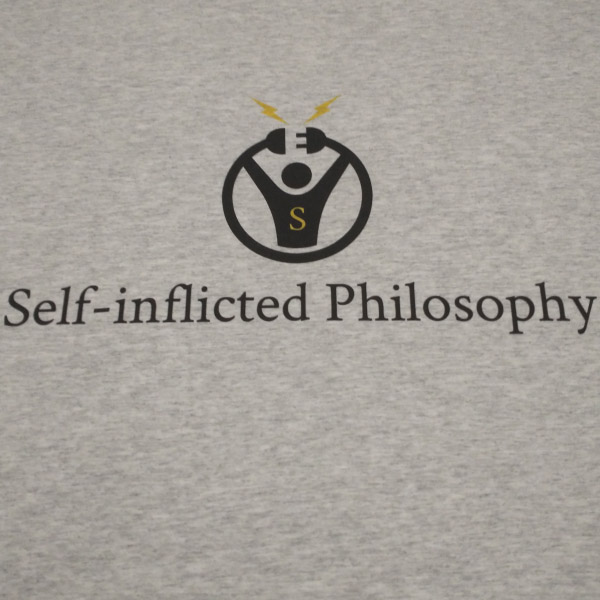Why Skepticism Is a Superpower
By Gary Z McGee
“We are asleep. Our Life is a dream. But we wake up sometimes, just enough to know that we are dreaming.” ~Ludwig Wittgenstein
What does it mean to wake up just enough to know that we are dreaming? It means that the “Truth” is out there, but it is not necessarily ours to grasp. It means we are “asleep” to how the universe really works. We are “asleep” to knowing why we’re here or what it all means or how we can even begin to figure it out.
Knowing that we’re dreaming is realizing that nobody knows what’s going on. Nobody has anything solid figured out. We’re all confused. We’re all a member of a fallible, prone to mistakes, clumsy species going through the motions of living a short life on an old planet hurtling through an unfathomably ancient universe.
No religion, ideology, philosophy, or politics has the answer. It’s all questionable. It’s all precarious. It’s all procrastinating wrongness.
Being skeptical is a superpower because it keeps this in perspective. It helps us question it all. It teaches us how to “entertain a thought without accepting it.” We learn how not to take anything personally. It teaches curiosity rather than certainty. It teaches healthy detachment. It keeps our bullshit and the bullshit of others in perspective by constantly reminding us that we are all full of shit. We see how it’s all bullshit, but knowing it sets us free.
Not being skeptical leads to religion:
“People who claim to be absolutely convinced that their stand is the only right one are dangerous. Such conviction is the essence not only of dogmatism, but of its more destructive cousin, fanaticism.” ~Rollo May
When we are not skeptical, we are more likely to fall for anything. Dogmatism becomes a blackhole threatening to devour our open-mindedness. Our convictions become prison bars. We lose the underlying essence to the overruling presence of a “higher truth.”
Having forgotten that we are members of a fallible, imperfect species, we forsake curiosity for certainty and our comfort zone becomes a walled fortress. Having forgotten that it’s all bullshit, we fall for all the bullshit, over and over again. We slip and slide on it, convincing ourselves of our sure footing.
Meanwhile the unfathomable universe spins on, changing, transforming, metamorphosing despite our vainglorious attempt to cling to any aspect of it. We get left behind. We find ourselves behind the curve. So busy with the pettiness of our finite games, we discover that the Infinite Game has passed us by. We lose. We’re lost. We’re unfounded.
Because no matter how much we think we know, there is nearly an infinite amount of information that we do not. And yet we still cling to what we think we know despite this fact. We want our beliefs to be true so badly that we believe in vain. We cling. We obsess. We attach. Then we unreasonably lash out when our beliefs are challenged, perceiving an attack that doesn’t exist. Cognitive dissonance devours us in its unforgiving maw.
For the skeptic there is only one deadly sin: giving up the Truth Quest for “the truth.” That’s religion.
Don’t pour the champagne out with the cork:
“Let me fall if I must fall. The one I am becoming will catch me.” ~Baal Shem Tov
But even skepticism must guard against becoming a religion.
We’re all familiar with the idiomatic expression: “Don’t throw the baby out with the bathwater,” in which something good is eliminated by trying to get rid of something bad. As skeptics, we don’t want to reject the unfavorable at the expense of the favorable. We don’t want to lose something essential for something nonessential. We don’t want to become so openminded that our brains fall out.
“The baby” is a metaphor for something essential. Hardcore skeptics risk losing something essential when they completely reject the reason why we created God in the first place.
There is no denying our basic human need to at least attempt to make sense out of the overwhelming, seemingly infinite, nonsensical, absurd, and pointless reality that surrounds us. The creation of God is that (perhaps vain) attempt.
We created God to alleviate our death anxiety, to square the circle of infinity, to pinpoint the improbability of probability, to manifest unconditional love, to behold an infinite canvas for our art, and to have something to laugh along with at the cosmic joke.
We are a stubbornly vain and imaginative species, and so we cannot help but create “technologies of ecstasy” that help us transcend death. As Nietzsche said, “No artist tolerates reality.” And so, intolerant of reality and the mortality it imposes upon us, we created God, the ultimate technology. The absolute Somethingness that we ushered in to trump the absolute Nothingness of our own impermanence.
Now, as seekers of truth, as skeptics, we need only maintain the Infinite heart of God despite religious attempts to pigeonhole it into finite text and limited dogmatic belief structures. We do this by being skeptical about skepticism itself.
Being skeptical about skepticism leads to spirituality:
“Intuition does not denote something contrary to reason, but something outside of the province of reason.” ~Carl Jung
What happens when we’re skeptical about skepticism itself? We prove to ourselves that, as Dostoevsky put it, “Men still are men and not the keys of a piano.” We see how we’re not meant to be played upon; we’re meant to play. We’re not meant to be serious and hardhearted; we’re meant to be playful and lighthearted.
Being skeptical about skepticism is the essence of playfulness and lightheartedness. If we’re too skeptical, we’re too serious, and in our self-seriousness we risk tossing the baby out with the bathwater. But when we’re skeptical about skepticism, however, we transcend seriousness. We allow imagination to be more powerful than reason. We keep ourselves open to possibility even as we sharpen our sword of probability.
Being skeptical about skepticism teaches us to pay attention to how we pay attention, to cultivate the capacity for curiosity, and to remain open to the possibility of possibility.
The only way to kill curiosity is to cling to certainty. When we’re overly skeptical, we are clinging too tightly to the certainty of our skepticism. When we’re certain about something it closes us up to possibility. It locks us into a dogmatic box. It creates invulnerable walls around our comfort zone which smothers our ability to be vulnerable. And suddenly we find ourselves trapped in religion.
Being skeptical about skepticism keeps curiosity at the forefront. Curiosity is the fuel that launches us beyond certainty, beyond religion. We’re open to possibility even when it seems impossible. This goes beyond faith and introduces us to a liberating spirituality.
It frees us to discover further freedom. We reimagine imagination itself. We liberate our third eye. We gain perception beyond ordinary sight. And we still have our healthy skepticism to keep it all in check.
Suddenly God is redefined, reimagined, and reborn. No longer pigeonholed in dogmatic constructs but liberated into spiritual interconnectedness. We finally see: Man is God asleep, and God is man awake. Being skeptical about skepticism awakens us just enough to know that we are dreaming.
Image source:
About the Author:
Gary Z McGee, a former Navy Intelligence Specialist turned philosopher, is the author of Birthday Suit of God and The Looking Glass Man. His works are inspired by the great philosophers of the ages and his wide-awake view of the modern world.
This article (Why Skepticism Is a Superpower) was originally created and published by Self-inflicted Philosophy and is printed here under a Creative Commons license with attribution to Gary Z McGee and self-inflictedphilosophy.com. It may be re-posted freely with proper attribution, author bio, and this statement of copyright.
– Come Like Us on Facebook – Check us out on Instagram –
– Sign Up for our Newsletter –













